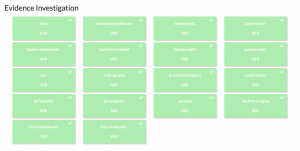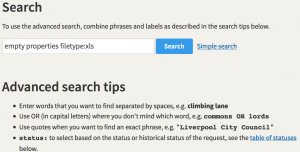Cardiff University’s Cyber Society gave us all its Capture the Flag challenge earlier this year and now has over a thousand players on its leaderboard, many of them sitting on the maximum score 0f 15,000.
The challenges are organised into three streams: ten introductory questions to get you warmed up, 18 tasks for online intelligence gathering and finally a dozen challenges centred around some fictional characters and their online life.
There are no pre-requisites for attempting it — it starts with a “What is OSINT?” question, so beginners are welcome — but it should test most players’ “resilience” (i.e. can you keep playing even though you’ve run out of ideas, patience and any sense that you once knew anything about online intelligence gathering?). At least one of our Computational Journalism students has made it successfully through all the challenges.
The challenges were featured by We Are OSINTCurious on its webcast in March.



